GNOME is one of the most controversial Linux desktops out there, but luckily, you can remove a bit of that controversy by adding GNOME extensions to your desktop for extra functionalities.
These extensions serve as “addons” that you can easily install and tweak according to your needs.
The GNOME extensions that you install need to be compatible with the GNOME desktop version that you are running. For example, extensions designed to work on the GNOME 45 desktop may not work on the GNOME 46 desktop, and vice versa.
Sometimes they do. it’s just, not guaranteed that they do.
Table of Contents: [show]
How To Install GNOME Extensions?
The main way to install GNOME extensions is via the extensions.gnome.org website.
It’s an official platform belonging to GNOME where any developer can publish their extensions easily so that users can install them in a single click.
In order to for this to work, you’ll need two things:
- Browser Add-on: You’ll need to install a browser add-on that allows the website to communicate with your local GNOME desktop. You install it from here for Firefox, or here for Chrome.
- Native Connector: You still need another component to allow your system to accept installing files locally from your web browser. To install this component, you must install the
chrome-gnome-shellpackage. Do not be deceived! Although the package name contains “chrome”, it also works on Firefox too. To install it on Debian/Ubuntu/Mint run the following command in the terminal:sudo apt install chrome-gnome-shell
For Fedora:sudo dnf install chrome-gnome-shell
For Arch:sudo pacman -S chrome-gnome-shell
After you have installed the two components above, you can easily install extensions from the GNOME extensions website.
How to Configure GNOME Extensions Settings?
Many GNOME extensions offer different possible settings to adjust based on users’ needs.
And it is important that you see these settings at least once in your life so that you know what you can achieve by tweaking them, if possible, to your own use cases.
To do this, you can head to the installed extensions page on the GNOME website, and you’ll see a small options button near every extension that offers one:

Clicking it will display a window for you, from which you can see the possible settings:

In this article, we are going to see the top GNOME extensions that you can use for each use case and workflow in order to improve your GNOME experience and boost your productivity.
General Extensions
1. User Themes
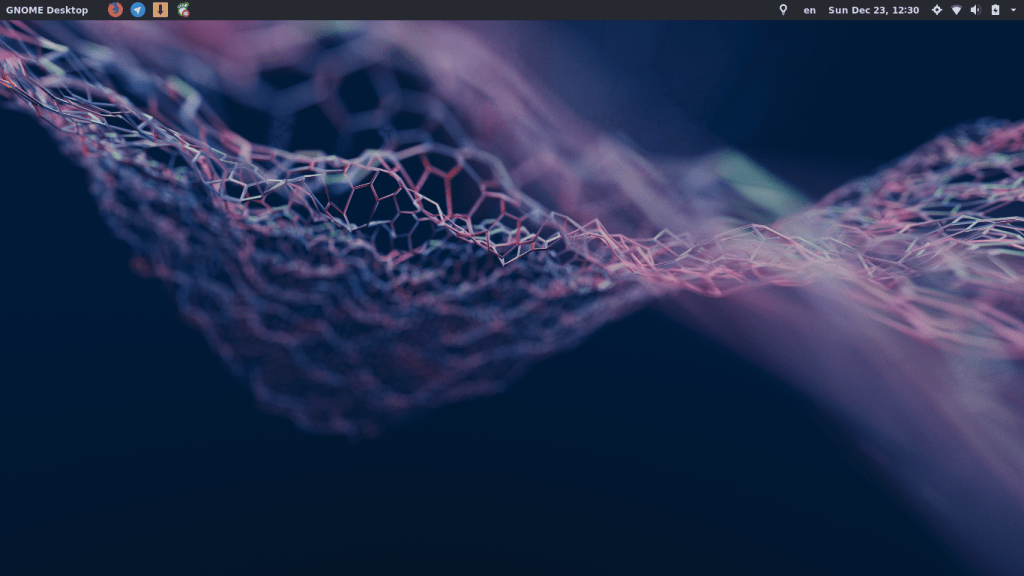
This is the first must-install extension on GNOME Shell.
It simply allows you to change the desktop theme to another one using the tweak tool. After the installation run gnome-tweaks, and you’ll be able to change your desktop theme to any other theme that you have installed (E.g after putting it in /home/<username>/.themes).
Installation link: https://extensions.gnome.org/extension/19/user-themes/
2. Dash to Panel
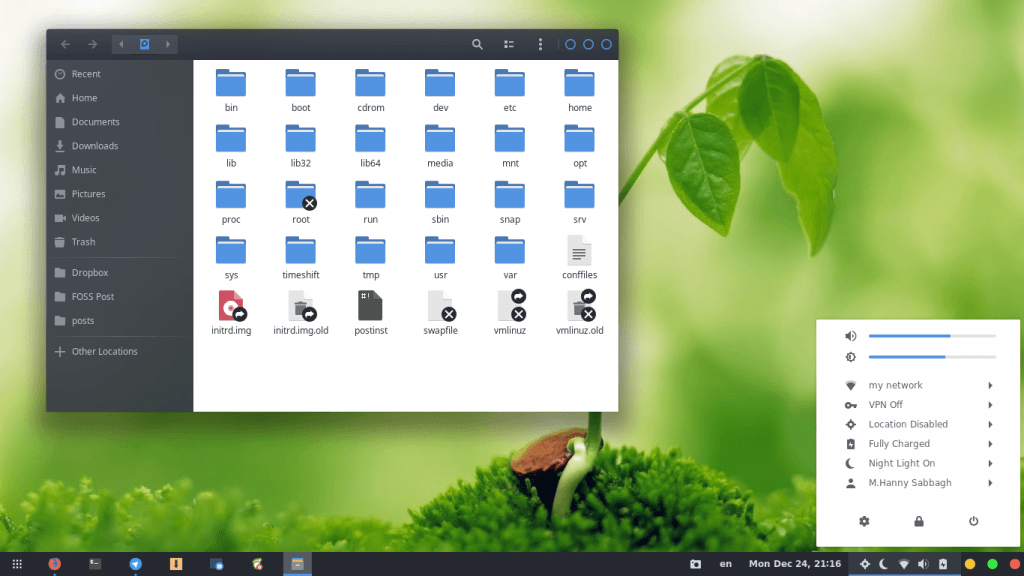
This one converts the GNOME top bar into a taskbar with many added features, such as favorite icons, moving the clock to the right, adding currently opened windows to the panel and many other features.
Just make sure not to install it with other GNOME extensions that provide the same functionality, or your desktop may crash.
Installation link: https://extensions.gnome.org/extension/1160/dash-to-panel/
3. GSConnect

KDE Connect is a desktop application that allows pairing a smartphone with a Linux desktop PC powered by KDE desktop, enabling features like notifications mirroring, file sharing and much more.
GSConnect is an implementation of the same features but for GNOME desktop, and it does not require the KDE Connect desktop application to be installed.
Hence, you can use this extension to simply link your smartphone with your Linux-based GNOME desktop.
You’ll only need to install this extension on your PC and the KDE Connect app on your phone so that you can link them together.
Installation link: https://extensions.gnome.org/extension/1319/gsconnect
Productivity Extensions
4. Todo.txt
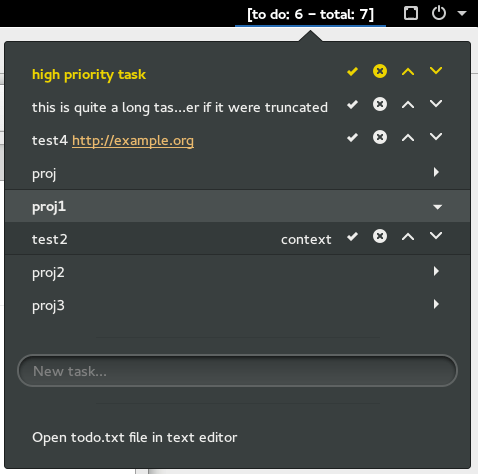
For users who like to maintain productivity, you can use this extension to add a simple To-Do list functionality to your desktop.
It will use the syntax from todotxt.com.
You can add unlimited to-dos, mark them as complete or remove them, and change their position besides modifying or taking a backup of the todo.txt file manually.
Installation link: https://extensions.gnome.org/extension/570/todotxt/
5. Screenshot-Cut

This GNOME extension adds a screenshot button to your top panel. Click it anytime you want in order to either take a screenshot or a screencast for any part on your desktop.
It uses the built-in screenshotting features in GNOME desktop itself to achieve this. Then, there is an auto clicker to click things when you want.
Installation link: https://extensions.gnome.org/extension/6868/screenshort-cut/
6. Clipboard Indicator
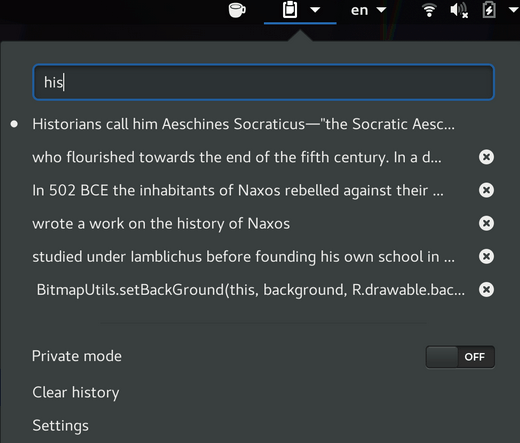
A clipboard manager is simply an application that manages all the copy & paste operations you do on your system and saves them into history so that you can access them later whenever you want.
This extension does exactly this, plus many other cool features that you can check.
You will see an indicator on your GNOME top panel where you can see your history of copy & paste operations.
Installation link: https://extensions.gnome.org/extension/779/clipboard-indicator/
7. Gemini AI ChatBot

Want to include AI capabilities in your desktop? Some people do.
If you are one of them, then you can use this extension to connect your Gemini AI subscription with your GNOME desktop. An icon on the top panel will be created from which you can chat with Gemini and ask it anything according to your own user prompts and setup.
It requires having your own API key in order to use it.
Installation link: https://extensions.gnome.org/extension/6834/gemini-ai/
8. Advanced Alt + Tab Window Switcher
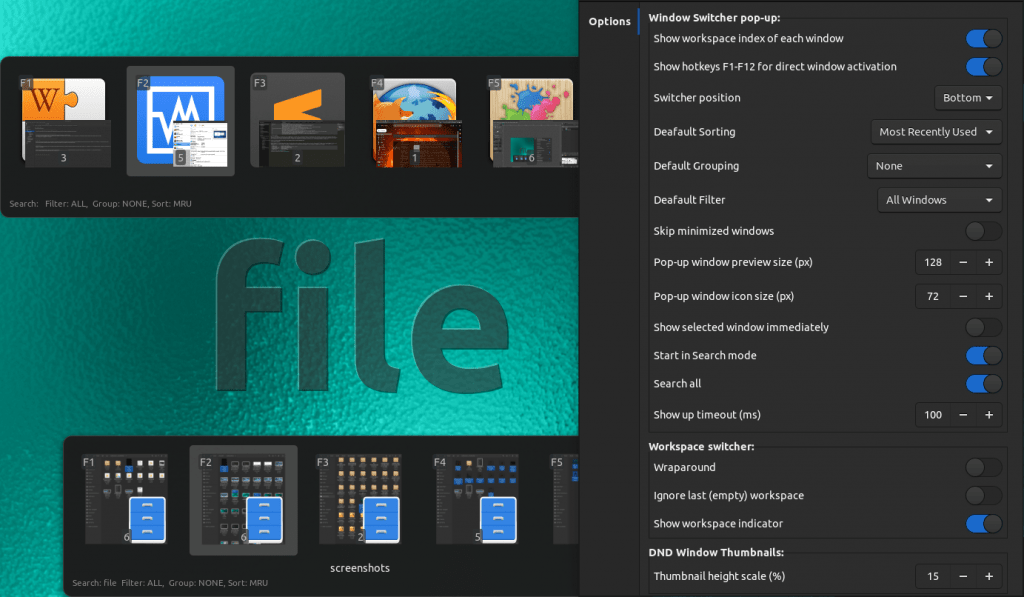
The default Alt + Tab window switcher in GNOME is limited, and you have no options to configure anything in it, hence you can’t adjust it to your needs.
This extension solves this issue by making the Alt + Tab window a Swiss army knife full of possible adjustments and options that you can toggle.
https://extensions.gnome.org/extension/4412/advanced-alttab-window-switcher
Workflow Extensions
9. Arc Menu
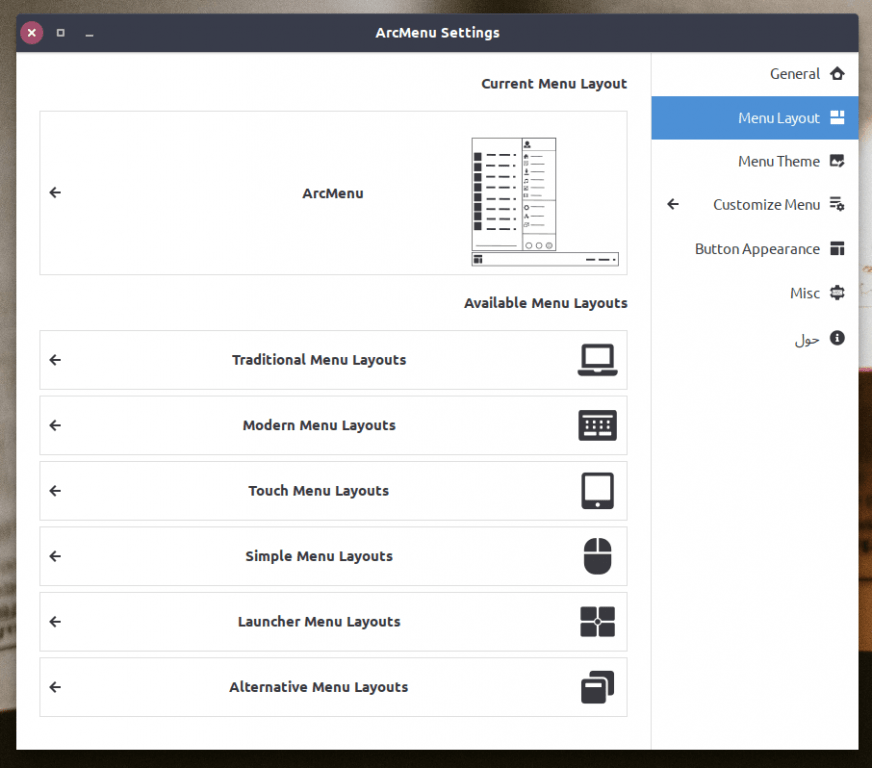
Arc Menu is an application menu for the GNOME desktop, and can be easily considered one of the best extensions out there.
It has many different built-in layouts miming different operating systems and desktops such as Brisk, Whisker, Redmond, Windows 10 and much more.
It has so many options to configure as well, making it a nice Swiss army knife for those who’d love to have a modern application menu instead of the traditional GNOME dashboard.
https://extensions.gnome.org/extension/3628/arcmenu
10. Applications Menu
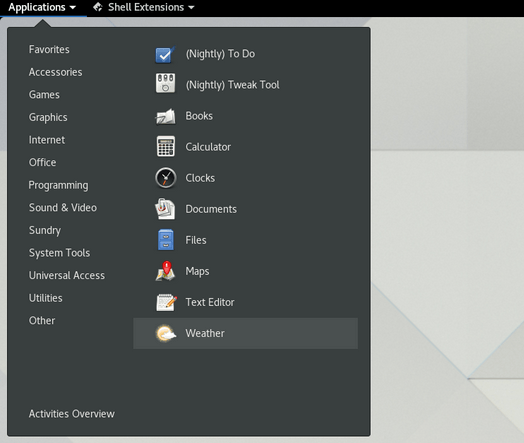
This extension simply adds a classic menu to the “activities” menu on the corner. By using it, you will be able to browse the installed applications and categories without the need to use the dash or the search feature, which saves you time.
Installation link: https://extensions.gnome.org/extension/6/applications-menu/
11. Places Status Indicator
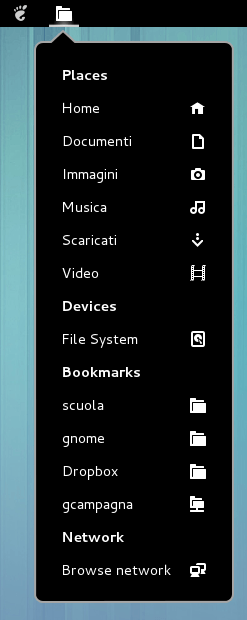
This indicator will put itself near the left corner of the activities button, it allows you to access your home folder and sub-folders easily using a menu, and you can also browse the available devices and networks with it.
Installation link: https://extensions.gnome.org/extension/8/places-status-indicator/
12. Window List
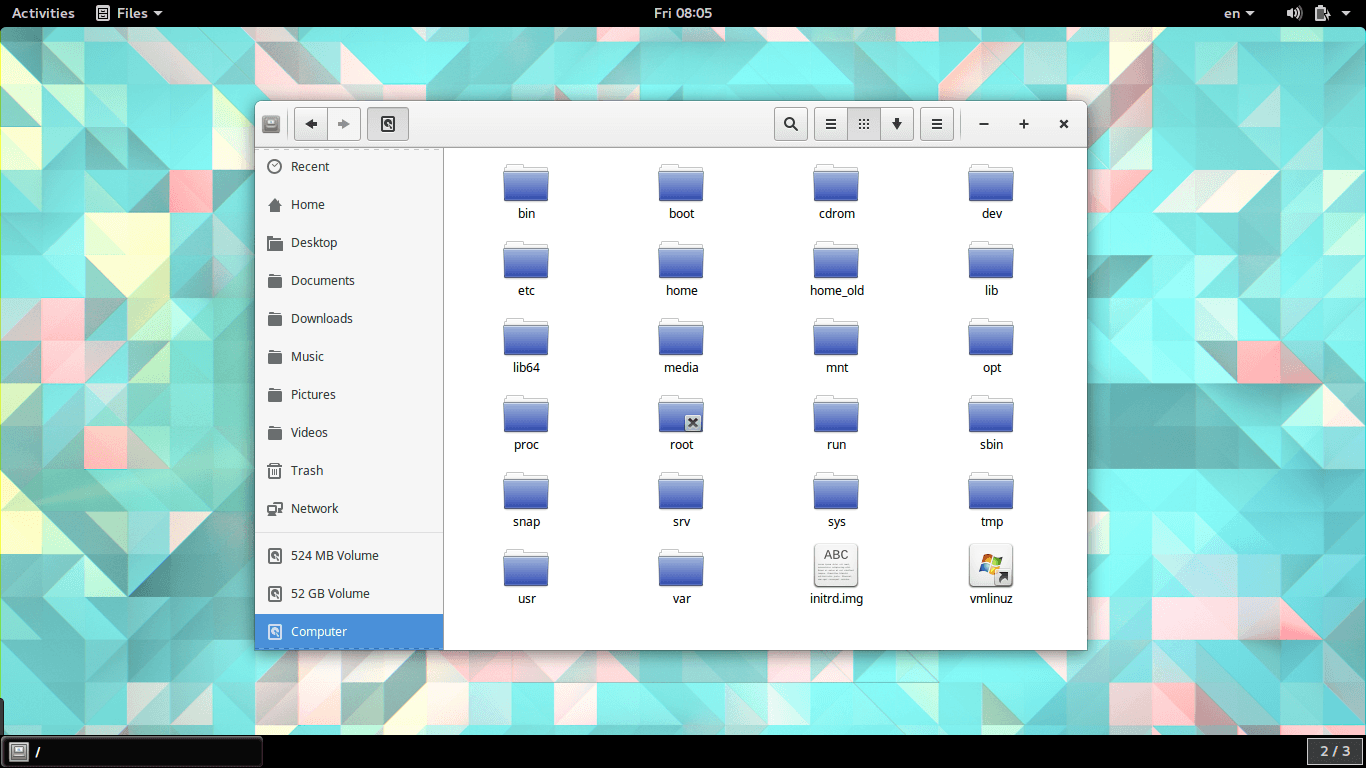
Officially supported by GNOME team, this extension adds a bottom panel to the desktop which allows you to navigate between the open windows easily, it also includes a workspace indicator to switch between them.
It is part of the GNOME classic session that is made available by GNOME.
Installation link: https://extensions.gnome.org/extension/602/window-list/
13. Frippery Panel Favorites

This extension adds your favorite applications and programs to the panel near the activities button, allowing you to access them more quickly with just one click.
You can add or remove applications from it just by modifying your applications in your favorites (the same applications in the left panel when you click the activities button will appear here).
Installation link: https://extensions.gnome.org/extension/4/panel-favorites/
14. Desktop Icons

If you miss the old GNOME 2.x desktop, then you can get a little bit of its traditional workflow back with this extension.
It simply adds desktop icons back to the GNOME desktop so that you can add files and/or applications to your desktop, and launch them instantly when you desire instead of navigating through menus or searching for them.
Has many different options to configure as well.
Installation link: https://extensions.gnome.org/extension/5263/gtk4-desktop-icons-ng-ding/
Other Extensions
15. Frippery Move Clock

If you are one of those people who like alignment a lot and like dividing the panels into two parts only, then you may love this extension as well.
What it simply does is move the clock from the middle of the GNOME Shell panel to the right side near the other applets on the panel, which makes it more organized.
Installation link: https://extensions.gnome.org/extension/2/move-clock/
16. AppIndicator and KStatusNotifierItem Support
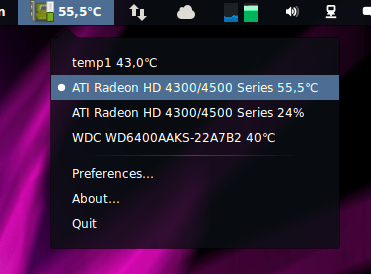
Away from the technical name, this extension simply restores the old nice system tray back to the GNOME desktop by adding it to the panel, and hence, you can use applications like Skype, Teams, Zooms and others with ease.
Native context menus are going to be displayed if the tray icon of the applications has a right-click menu.
https://extensions.gnome.org/extension/615/appindicator-support
17. “Window is ready” Remover

Simply removes the “window is ready” notification each time a new window a opened.
Installation link: https://extensions.gnome.org/extension/1007/window-is-ready-notification-remover/
18. Removable drive Menu

Adds an icon to the top bar which shows you a list of your currently removable drives.
Installation link: https://extensions.gnome.org/extension/7/removable-drive-menu/
19. OpenWeather Refined
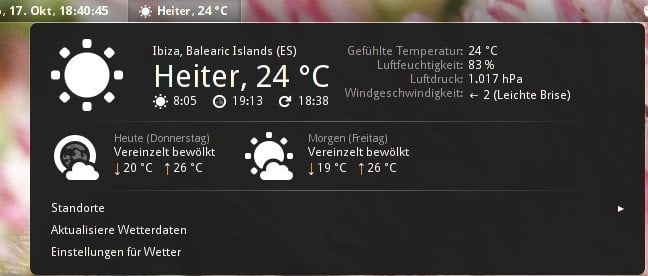
If you would like to know the weather forecast each day, then this extension will be the right one for you.
It will simply add an applet to the top panel allowing you to fetch the weather data from openweathermap.org or forecast.io. It supports all the countries and cities around the world, and can show wind and humidity information.
Installation link: https://extensions.gnome.org/extension/6655/openweather/
20. Extension List

Extension support from GNOME Tweaks has sadly been removed and moved into another separate app.
Luckily, you can use a GNOME extension to manage your extensions directly from GNOME Shell itself. Just install this extension and you will see an applet on your GNOME panel from which you can activate or disable your installed extensions.
Installation link: https://extensions.gnome.org/extension/3088/extension-list/
Conclusion
This was our list of some great GNOME Shell extensions to try out.
Of course, you don’t (and shouldn’t!) install all of these, but just what you need for your own usage.
As you can see, you can convert GNOME into any form you would like, but be careful, because if you install many extensions (>10) then your desktop may start to consume more CPU & RAM resources than it should.
You can take a look at how you can edit hidden GNOME settings for more features and things you can try out:
What other GNOME Shell extensions do you use? What do you think of this list?
Let us know in the comments.

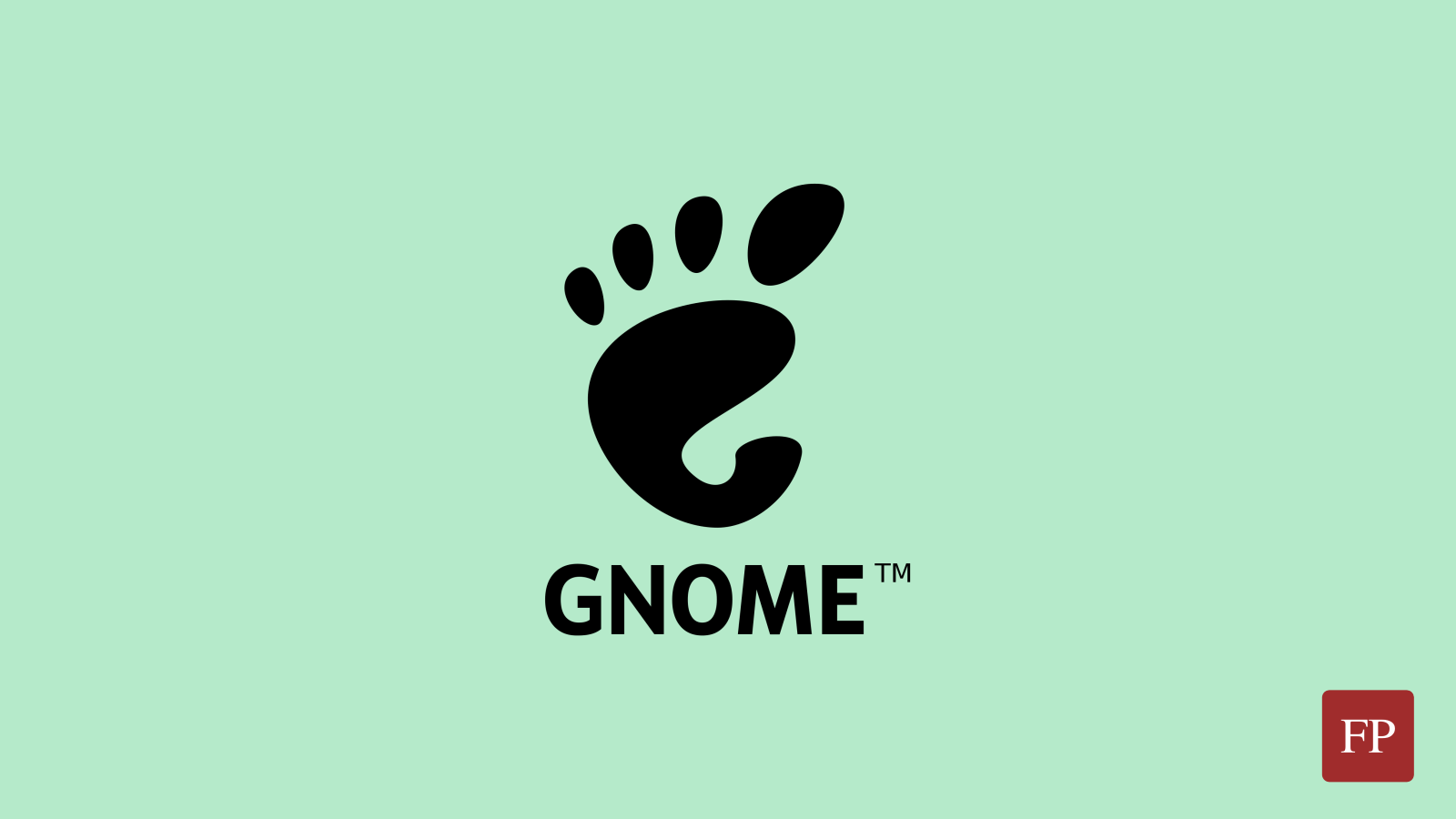

Leave a Reply